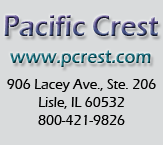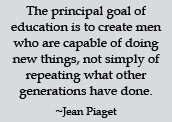|














|
 |
|

This is part of a continuing series
where we recognize and pay tribute to the
thinkers and practitioners who laid the foundation
for Process Education. |
Malcolm Knowles
(1913-1997) was an educator and educational
philosopher, most famous for his work on the
theory of androgogy (the teaching of adults as
opposed to pedagogy, the teaching of children).
He is also recognized as a prominent figure in
the ongoing movement toward increased
self-direction and responsibility on the part of
learners. Making reference to the Transformation
of Education (this issue of Reflections),
Knowles work touches on the aspects of
control, ownership, and
social orientation. Additionally, the module
2.1.2, Adult Learning Theories in Process
Education (Faculty Guidebook) offers a
much more comprehensive picture of Knowles' very
significant and abiding contributions to Process
Education.
|
 |
"In its broadest meaning, 'self-directed
learning' describes, a process... in
which individuals take the initiative, with
or without the help of others, in diagnosing
their learning needs, formulating learning
goals, identifying human and material
resources for learning, choosing and
implementing appropriate learning
strategies, and evaluating learning
outcomes."
Self-Directed
Learning: A Guide for Learners and Teachers
(1975, pg 18) |
|
Knowles puts forward
three immediate reasons for self-directed learning.
First he argues that there is convincing evidence that
people who take the initiative in learning (proactive
learners) learn more things, and learn better, than do
people who sit at the feet of teachers passively waiting
to be taught (reactive learners). 'They enter into
learning more purposefully and with greater motivation.
They also tend to retain and make use of what they learn
better and longer than do the reactive learners.'
(pg 14)
A second immediate reason is that self-directed learning
is more in tune with our natural processes of
psychological development. 'An essential aspect of
maturing is developing the ability to take increasing
responsibility for our own lives - to become
increasingly self-directed' (pg 15).
A third immediate reason is that many of the new
developments in education put a heavy responsibility on
the learners to take a good deal of initiative in their
own learning. 'Students entering into these programs
without having learned the skills of self-directed
inquiry will experience anxiety, frustration , and often
failure, and so will their teachers (pg 15).
from:
Smith, M. K. (2002) 'Malcolm Knowles, informal
adult education, self-direction and anadragogy',
the encyclopedia of informal education,
www.infed.org/thinkers/et-knowl.htm.
|
|
|
|
|
|
![]()


